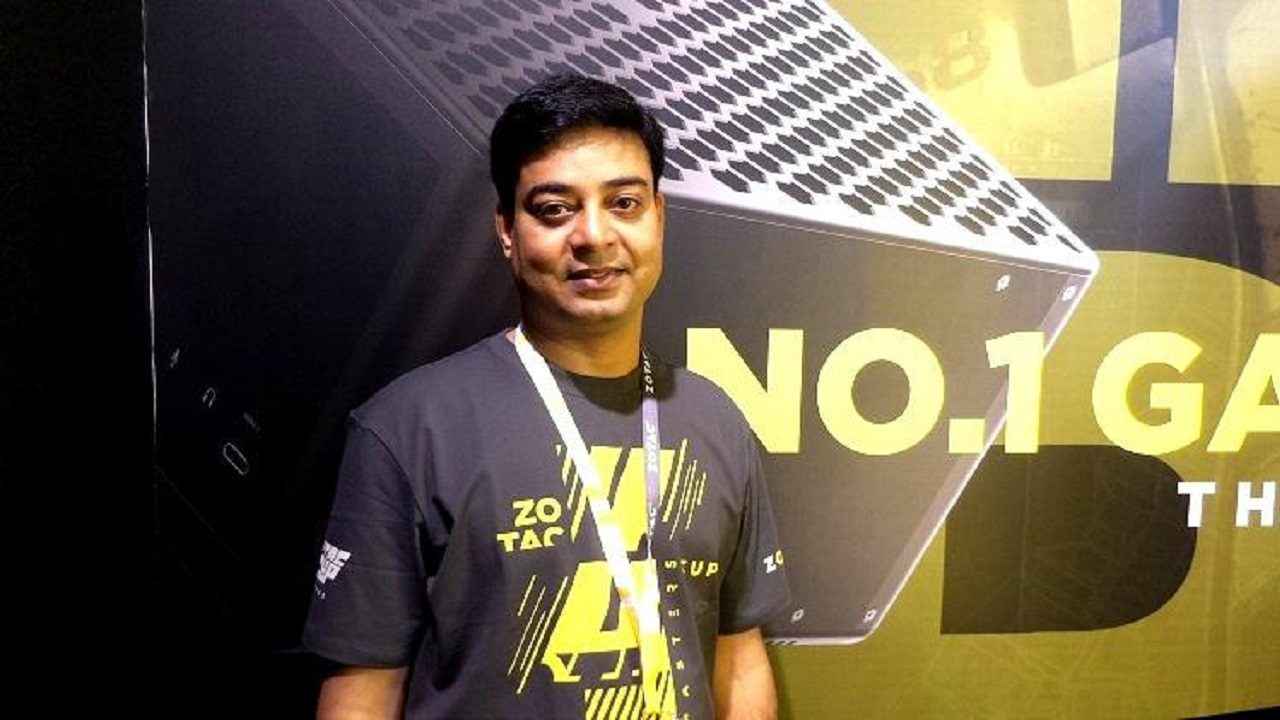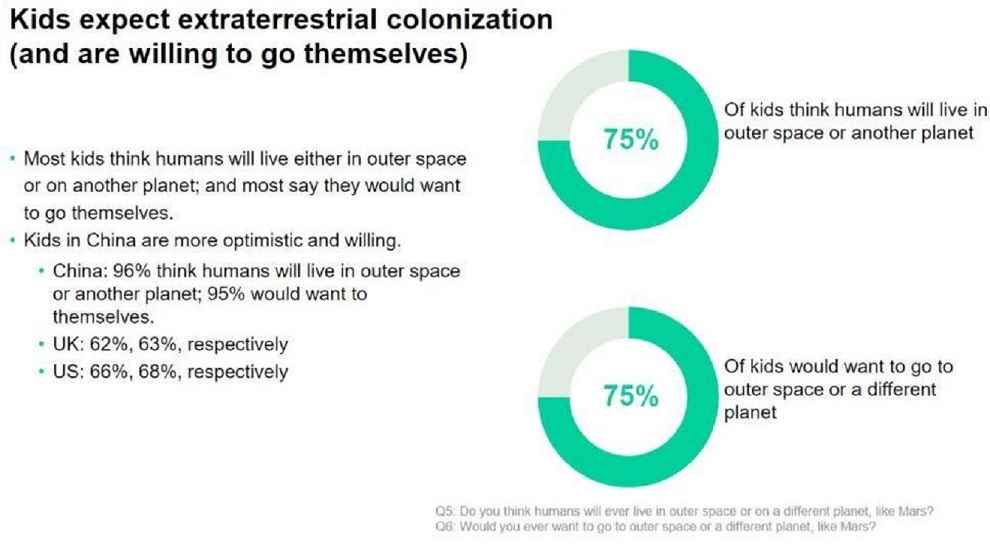Deepak Gupta of Zotac India talks about Tech Smart vs Space Smart and How Generation Alpha starts a new debate of Computing Needs

We're celebrating our 20th birthday this month, and we've invited industry experts, researchers and scientists to write in and paint a vision of the future, 20 years from now. Here's what Deepak Gupta, Country Head South East Asia at ZOTAC Technology Ltd had to share about his vision of the future
 Survey
SurveyIntroduction
We millennials have always been intrigued by the polarizing question of book smart vs street smart and which of these skills are required to succeed in life. But then we are in an age where, whenever we are perplexed with riddles of life or unacquainted situations, we are just a browser’s search away from finding the answers. With hundreds of opinions yet only going through the top four results that the search engine throws at us; it evokes us to ask these questions: What kind of world do we exist in? Is our existence a consequence of these search results? How long is our attention span to persuade our curiosity? What about the generation that follows next?
The Age Cohorts and The Technological Requirements
Most modern-day businesses and marketers have defined their consumers in demographic segments by birth year as follows Baby Boomers or Boomers (1946-64), Generation X (1965-80), Millennials (1981-96), Generation Z (1997-2012), Generation Alpha (Early 2010s-Mid 2020s). The cohort of Generation Alpha will entirely be born in the 21st century and with two and a half million newborns being born every week as of 2015, the estimated size of this cohort will be two billion by 2025.
A 2019 survey was conducted by LEGO and The Harris Poll, to commemorate the 50th anniversary of the space launch of Apollo 11. The survey conducted of 3000 children aged 8 to 12 saw one out of three children in the US and UK wanting to be a vlogger than being an astronaut. 75% of the respondents kids think humans will live in outer space or another planet. 75% of kids want to go to outer space or a different planet. The data points from this study are fascinating for us hardware manufacturers as it assures us that the demand for hardware will always be on the rise in the future.
To stand out as a content creator in a world where children start getting exposed to technology as young as 2 years and attention span being low, unique, and high-quality content needs to be created daily. Many content creators these days chose to be gaming streamers as it is entertaining as well as accomplishes the goal of being a vlogger. Then, in an age of technological advancement: 4K Gaming, 4K Content, and VR Gaming are new incoming trends. All these would require heavy usage of Desktop PCs for streaming, rendering, and transitioning of content.
Computer Science techniques have helped astronomers explore the universe with the help of Deep Learning. Deep learning finds telltale arcs of light that indicate massive objects. To make complex groupings, astronomers have extensively used statistical machine learning techniques like neural networks, which are programmed systems with layered nodes connected in a web similar to neurons in the human brain. Deep learning just involves more interconnected layers or steps in the computation, including “hidden” ones of increasing complexity as the algorithm proceeds from input to output. The computational requirement in deep learning requires training a large dataset. Hence, a GPU is an optimum choice to compute data efficiently. The larger the computation the more ideal will be the application of a GPU.
Futuristic Hardware Needs for Generation Alpha
With polarising yet technological dependant career options of being a vlogger or pursuing astronomy in mind, the professional needs do not get fulfilled with a smartphone device in hand for the Generation Alpha. A drawback of a laptop is the specifications it provides for the portability and high specifications laptop being heavy and bulky.
Generation Alpha would require ease in transferability but with the high-end specifications bringing in exigency of the pocket-sized desktop. With the wireless peripherals system already adapted the pocket-sized desktop will be the next-gen technology with wireless peripherals system giving ease in portability. They would need something with which they can stream in 4k from anywhere, something which they can take to a library and do Deep Learning Experiments on.
The parallel processing design of GPU has seen it being adapted in varied fields where AI is being used like medical research, military and defense systems, security and surveillance, manufacturing, autonomous flying, etc. Currently popular in gaming and video rendering; future GPU speed enhancements provide up a slew of new possibilities for demanding applications like computational graphics, computer vision, and a variety of other high-performance computing tasks.
COVID-19 and Gamers Support
When the need arose on the outbreak of Covid-19, it was the gamers and Nvidia who helped out medical researchers and data scientists to understand the novel coronavirus. Nvidia encouraged people to download the Folding@Home application to accelerate the research. This application was described as “a distributed computing project for disease research that simulates protein folding, computational drug design and other types of molecular dynamics" – meaning several computers can link together and dedicate their processing power to perform huge tasks. This sets a precedence that when the need arises it will be technology lying in the hands of common people that will drive a much larger global initiative.
The Desktop needs to be Much Smaller in Future
It’s ironic as I write this article, I will be attending my first ever virtual Computex from home. What we used to visit, touch and feel are now available and visible in the comfort of our home. This makes me question our world would soon become ever so smaller and connected yet so distant.
The Desktop PC for content creators, gamers, engineers in the field of Astronomy, Artificial Intelligence, Machine Learning, and Deep Learning need to have high-end specifications but should also be portable with this world being every so small and the travel industry seeing an exponential boom in COVID free era. We at ZOTAC GAMING have revolutionized the current portability requirements with our latest ZBOX MAGNUS One Series giving you the latest Geforce RTX 30 Series providing high-fidelity ray-traced graphics and cutting-edge AI features with DLSS specifications along with portability by being the size of a small UPS. So be it tech smart or space smart in future with their varied computing applications, both the cohorts will have a requirement of mini desktops.
-By Deepak Gupta, Country Head South East Asia at ZOTAC Technology Ltd
To read what other industry leaders and experts have to say about the future in their respective fields, visit our 20th Anniversary Microsite
Industry leader
Contributions from industry leaders and visionaries on trends, disruptions and advancements that they predict for the future View Full Profile
